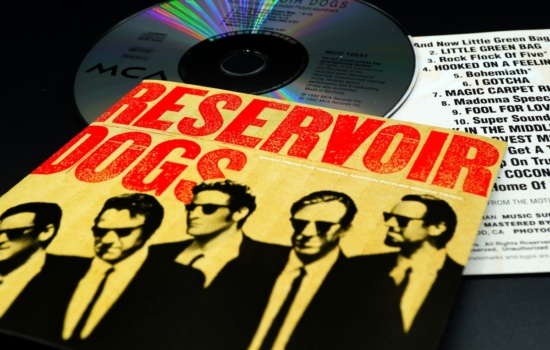
The Ultimate Tour Bus Driver Career Guide
- Published: August 4, 2023
- By: Yellowbrick
Tour Bus Driver: The Ultimate Guide to Becoming a Professional Driver
If you love driving and are passionate about music, becoming a tour bus driver could be the perfect career choice for you. As a tour bus driver, you will have the opportunity to travel the country and even the world while working in the music industry. In this article, we will explore what it takes to become a tour bus driver, the responsibilities of the job, and the potential career paths in this exciting field.
What is a Tour Bus Driver?
Tour bus drivers are responsible for transporting musicians, crew members, and equipment from one location to another. They are responsible for the safe and timely arrival of the tour bus and its passengers at each destination. Tour bus drivers work closely with tour managers and are an integral part of the touring team.
Responsibilities of a Tour Bus Driver
Tour bus drivers have a wide range of responsibilities that include:
- Driving: The primary responsibility of a tour bus driver is to safely transport the tour bus and its passengers to each destination on the tour.
- Maintenance: Tour bus drivers are responsible for the maintenance and upkeep of the tour bus. This includes regular maintenance such as oil changes, tire rotations, and inspections.
- Communication: Tour bus drivers must be able to communicate effectively with the tour manager and other members of the tour team. This includes providing updates on the status of the tour bus and any issues that arise.
- Navigation: Tour bus drivers must be familiar with the routes and directions to each venue on the tour. This includes researching the best routes to take and any potential hazards or obstacles along the way.
- Safety: Tour bus drivers are responsible for the safety of the passengers on the tour bus. This includes ensuring that all safety protocols are followed and that the tour bus is in compliance with all regulations.
How to Become a Tour Bus Driver
Becoming a tour bus driver requires a combination of education, training, and experience. Here are the steps you need to take to become a professional tour bus driver:
- Obtain a Commercial Driver’s License (CDL): To become a tour bus driver, you must have a CDL with a passenger endorsement. This requires passing a written exam and a skills test. You must also have a clean driving record and be at least 21 years old.
- Gain Experience: Most tour bus companies require at least 2-3 years of experience as a commercial driver before hiring you as a tour bus driver. This experience can be gained by driving a variety of vehicles, including buses, trucks, and vans.
- Get Hired by a Tour Bus Company: Once you have the necessary experience and qualifications, you can begin applying for tour bus driver positions. Tour bus companies typically require a background check and drug test before hiring you.
- Complete Training: Tour bus companies provide training for their drivers, which includes safety procedures, communication protocols, and maintenance procedures. You will also receive on-the-job training from your tour manager and other members of the tour team.
Career Paths for Tour Bus Drivers
Tour bus driving can lead to a variety of career paths in the music industry. Here are some of the potential career paths for tour bus drivers:
- Tour Manager: Tour bus drivers who have experience and knowledge of the music industry can become tour managers. Tour managers are responsible for all aspects of the tour, including logistics, finances, and scheduling.
- Roadie: Roadies are responsible for setting up and tearing down the stage and equipment at each venue on the tour. Tour bus drivers who have experience with equipment maintenance and repair can transition into a roadie role.
- Production Manager: Production managers are responsible for overseeing the technical aspects of the tour, including lighting, sound, and video. Tour bus drivers who have experience with equipment maintenance and repair can transition into a production manager role.
- Tour Bus Company Owner: Tour bus drivers who have experience and knowledge of the music industry can start their own tour bus company.
Key Takeaways
Becoming a tour bus driver requires a combination of education, training, and experience. To become a professional tour bus driver, you must obtain a CDL with a passenger endorsement, gain experience, get hired by a tour bus company, and complete training. Tour bus driving can lead to a variety of career paths in the music industry, including tour manager, roadie, production manager, and tour bus company owner.
If you are interested in pursuing a career in the music industry, consider taking the NYU x Billboard | Music Industry Essentials online course and certificate program. This program provides an in-depth understanding of the music industry, including touring logistics and management.
Enter your email to learn more and get a full course catalog!
- Hidden hide names
- Hidden First Name
- Hidden Last Name
- Phone This field is for validation purposes and should be left unchanged.
More from Yellowbrick

Mastering the Art of Backline Tech: Tips & Tricks for Technicians
Explore the exciting role of a backline technician, gain insights into essential skills, career growth opportunities, and steps to achieve success in the live music industry.

Test Unlocked Resource Page
Lorem ipsum dolor sit amet, consectetur adipiscing elit, sed do eiusmod tempor incididunt ut labore et dolore magna aliqua. Ut enim ad minim veniam, quis nostrud exercitation ullamco laboris nisi ut aliquip ex ea commodo consequat. Duis aute irure dolor in reprehenderit in voluptate velit esse cillum dolore eu fugiat nulla pariatur. Excepteur sint occaecat cupidatat non proident, sunt in culpa qui officia deserunt mollit anim id est laborum.

Fashion and Identity: Exploring Expression through Style
Dive into the intricate relationship between Fashion and Identity Expression, explore how style choices communicate personal, cultural values, and the various career paths in fashion.
ABOUT YELLOWBRICK
- Work at Yellowbrick
- Privacy Policy
- Terms of Use
STUDENT RESOURCES
- Scholarships
- Student Login
- Beauty Business Essentials
- Beauty Industry Essentials
- Ecommerce Essentials
- Fashion Business Essentials
- Fashion Industry Essentials
- Footwear Business Essentials
- Gaming & Esports Industry Essentials
- Global Sports Management
- Hospitality Industry Essentials
- Music Industry Essentials
- Performing Arts Industry Essentials
- Product Design Essentials
- Sneaker Essentials
- Streetwear Essentials
- TV/Film Industry Essentials
- UX Design Essentials
©2024 Yellowbrick · All Rights Reserved · All Logos & Trademarks Belong to Their Respective Owners

- Login / Logout
- Opportunities
- Tour / Transit Bus Operator
- Professional School Bus Driver
- Directors Message
- Student Testimonials
- Orientation

Get started today! It's quick and easy.

MTS Training Academy offers comprehensive Class A, Class B, and Professional School Bus Driver training for the career-minded individuals seeking opportunities in the commercial driving industry. Since 1996, we have trained drivers for local and national trucking companies, tour and transit bus operators, and public/private school bus operators. Call us today at 800-445-2994 to get your driving career on the road! Annual Report

Referral Partners
- About MTS Academy
- Project Manager

What Does a Tour Bus Driver Do?
Find out what a Tour Bus Driver does, how to get this job, salary information, and what it takes to succeed as a Tour Bus Driver.

The Tour Bus Driver plays an essential role in the travel and tourism industry, offering a unique blend of safety, navigation, and hospitality to passengers eager to explore new destinations. This position requires a comprehensive understanding of local attractions, routes, and traffic regulations, ensuring a smooth and enjoyable journey for all on board. Beyond the operation of the vehicle, these professionals are ambassadors of the travel experience, often providing insightful commentary about the sights and sounds encountered along the way. Their expertise in managing schedules and maintaining a comfortable environment makes them an integral part of creating memorable trips for tourists and travelers alike.
Tour Bus Driver Job Duties
- Safely operate the tour bus along predetermined routes, adhering to all traffic laws and regulations.
- Provide informative and engaging commentary about landmarks, historical sites, and local attractions.
- Perform pre-trip and post-trip inspections of the bus to ensure it is in proper working condition.
- Manage the boarding and deboarding of passengers, ensuring a smooth flow and accounting for all individuals.
- Handle ticket sales, reservations, and confirmations for the tour, including processing payments and issuing receipts.
- Coordinate with tour operators or event planners on scheduling, route adjustments, and specific group needs.
- Maintain cleanliness and orderliness inside the bus throughout the tour to ensure a pleasant environment for passengers.
- Respond to emergencies or unexpected situations, such as medical incidents or vehicle malfunctions, in a calm and efficient manner.
Tour Bus Driver Salary & Outlook
Tour bus driver salaries are influenced by factors such as experience, the type of tours conducted (historical, adventure, etc.), seasonal demand, employer size (independent vs. large tour companies), and customer service skills. Additionally, drivers specializing in niche tours or possessing unique knowledge may command higher wages.
- Median Annual Salary: $36,763 ($17.67/hour)
- Top 10% Annual Salary: $61,000 ($29.33/hour)
The employment of tour bus drivers is expected to grow much faster than average over the next decade.
Increased global tourism, rising interest in local and international travel experiences, and the expansion of tour companies are driving the demand for Tour Bus Drivers. Additionally, the growing popularity of eco-friendly and cultural tours requires skilled drivers familiar with diverse locales, further boosting employment opportunities in this sector.
Tour Bus Driver Job Requirements
Education: A Tour Bus Driver typically holds a High School Diploma, with a focus on subjects that enhance communication and geographical knowledge. Courses in English, geography, and customer service are beneficial, providing foundational skills for interacting with passengers and navigating routes. While specific majors are not required, electives in tourism or hospitality can offer a competitive edge, emphasizing the importance of a well-rounded educational background in ensuring both safety and an enjoyable experience for passengers.
Experience: Tour Bus Drivers often enter the field without prior experience, learning through on-the-job training programs. These programs equip them with necessary skills, including safe driving practices, customer service, and route planning. Employers may also provide specific training related to the tour content, enabling drivers to share interesting facts and stories with passengers. Continuous learning and improvement in areas such as communication and emergency response are essential for success in this role.
Certifications & Licenses: Tour Bus Drivers typically require a Commercial Driver’s License (CDL), often with a Passenger (P) endorsement. Some regions may also mandate a specific Tour Bus Operator license or certification, and a clean driving record is generally essential. Additional certifications, such as First Aid or CPR, can be beneficial but are not universally required.
Tour Bus Driver Skills
Passenger Safety Procedures: Tour bus drivers are tasked with briefing each passenger on emergency exits, safety equipment, and protocols before departure. They must also conduct regular inspections of safety equipment, including first aid kits and fire extinguishers, and stay informed on the latest safety regulations and training to ensure a secure environment for everyone on board.
Route Planning: Developing efficient and scenic routes that meet time constraints while enhancing the passenger experience requires extensive knowledge of local geography, traffic patterns, and points of interest. Such planning ensures tours are memorable, smooth, and punctual, reflecting positively on the driver’s professionalism and the tour company’s reputation.
Defensive Driving: The ability to safely navigate a large vehicle through various environments demands a heightened awareness of surroundings and the skill to anticipate potential hazards. Tour bus drivers must adjust their driving in response to the actions of other drivers and pedestrians to maintain safety and comfort for passengers.
Customer Service: From the moment passengers board the bus, making them feel welcomed and valued is crucial for an enjoyable tour experience. Addressing concerns or questions attentively enhances overall satisfaction and increases the likelihood of passengers recommending the service.
ADA Compliance: Familiarity with the accommodations and modifications necessary to ensure all passengers, regardless of physical ability, can access and enjoy the tour is essential. Knowledge of lift systems, seating arrangements, and communication aids is required to provide an inclusive experience.
Emergency Response: In unexpected emergencies, tour bus drivers must quickly assess situations and implement safety protocols to ensure passenger well-being. A calm demeanor and clear communication, coordinating with emergency services when necessary, are imperative.
Tour Bus Driver Work Environment
Tour bus drivers operate in a dynamic environment, primarily within the confines of their vehicle, navigating through diverse terrains and cityscapes. Their workspace is the driver’s seat, equipped with standard vehicular controls and often enhanced with GPS and communication devices to stay connected with tour operators and passengers.
The nature of their work dictates irregular hours, with weekends and holidays being peak times for tours. Dress codes can vary, often leaning towards company-branded attire for easy identification by clients. The social aspect of the job is significant, requiring drivers to interact frequently with passengers, providing not just a service but an experience.
Health and safety are paramount, with drivers adhering to strict regulations to ensure everyone’s well-being. Noise levels can fluctuate, especially in bustling city tours or when engaging with passengers. The pace of work is generally steady, punctuated by periods of waiting or downtime between tours.
Travel is inherent to the role, with some positions requiring overnight stays or long-distance travel, impacting work-life balance. Despite the challenges, the role offers a unique opportunity to meet diverse groups of people and explore new locations, making it appealing to those with a love for travel and customer service.
Advancement Prospects
Tour bus drivers can advance their careers by transitioning into roles with higher responsibility and pay, such as becoming a tour operations manager or starting their own tour company. Gaining experience in diverse routes and specializing in niche tours (e.g., historical, adventure) enhances their value and opens up opportunities for leading more exclusive and higher-paying tours.
Building a strong reputation for safety, knowledge, and customer service is crucial. Drivers can leverage this reputation to negotiate better terms or move into luxury tour segments. Additionally, mastering multiple languages can significantly boost a driver’s appeal to international tourists, potentially leading to opportunities with global tour operators.
Progressing in this career often involves a mix of practical experience, customer service excellence, and strategic career moves, such as identifying and specializing in high-demand tour niches.
What Does a Mill Operator Do?
What does a procurement buyer do, you may also be interested in..., what does a postpartum nurse do, what does a reliability manager do, 16 chemical laboratory technician skills for your career and resume, what does an assistant it manager do.
- Get the Job
- Resumes and CVs
- Applications
- Cover Letters
- Professional References
Professional Licenses and Exams
- Get a Promotion
- Negotiation
- Professional Ethics
- Professionalism
- Dealing with Coworkers
- Dealing with Bosses
Communication Skills
Managing the office, disabilities, harassment and discrimination, unemployment.
- Career Paths
- Compare Careers
- Switching Careers
- Training and Certifications
- Start a Company
- Internships and Apprenticeships
- Entry Level Jobs
- College Degrees
Growth Trends for Related Jobs
Tour bus driver training.

Driving a tour bus isn’t a job that you can do tomorrow without any experience. This job requires getting additional licenses and going through a training process that includes classroom learning, closed course driving and on-the-job training. Learning how to be a tour bus driver may take up to 2 months but should prepare would-be drivers for the road.
Requirements
To get a job as a tour bus driver, you need a driver’s license with a clean record. In addition, many states ban anyone with a felony conviction for a driving-related offense from getting a commercial driver's license (CDL), which precludes employment as a tour bus driver. Many companies also require drivers to have a high school diploma.
The CDL requires additional testing over and above that of the typical driver’s license. In addition, most tour bus drivers will need a CDL with a P, or passenger, designation. To earn this designation, drivers must undergo additional reading and testing to help them learn how to drive well with passengers aboard.
Classroom Training
According to the Bureau of Labor Statistics, most companies hiring tour bus drivers will put those drivers through their own training courses. These courses typically last from 2 to 8 weeks and cover driving rules and regulations as well as company policies and any special instructions for driving tour buses. Tour bus training will cover all of the topics needed to drive the bus safely.
Closed Course Training
The next step in tour bus training is driving on a closed course. With these courses, potential tour bus drivers will get a feel for the buses and how to handle them. The closed course training will help instructors with one-on-one training without putting anyone in danger.
On-The-Job Training
Once a tour bus driver is finished with the classroom and closed-course training, the Bureau of Labor Statistics reports that the next step typically is to allow new drivers to complete the easier routes with the supervision of a veteran driver. New drivers will be able to learn how to handle the vehicle, traffic and passengers on less-populated routes until he becomes proficient.
Related Articles
Greyhound bus driver training →.

How to Become a Motorcycle Instructor →
The fastest way to get your cdl →.

How to Become a Driving School Instructor →
How to become a driving instructor in south carolina →, how to become an osha certified forklift trainer →.
- Bureau of Labor Stats: Bus Drivers
- State University: Bus Driver Jobs
Brandi Brown is a freelance writer with over five years of Web-based experience. She has a bachelor's degree in history from Mercer University and is a graduate student in women's and gender studies at the University of Louisville. Her works appears in various online journals and offline newspapers.
- Job Descriptions
- Law Enforcement Job Descriptions
- Administrative Job Descriptions
- Healthcare Job Descriptions
- Sales Job Descriptions
- Fashion Job Descriptions
- Education Job Descriptions
- Salary Insights
- Journalism Salaries
- Healthcare Salaries
- Military Salaries
- Engineering Salaries
- Teaching Salaries
- Accessibility
- Privacy Notice
- Cookie Notice
- Copyright Policy
- Contact Us
- Find a Job
- Manage Preferences
- California Notice of Collection
- Terms of Use
CAREER PATHWAYS
Looking for the perfect job? Explore our Career Guides!
How to Become a Bus Driver
By Lace Brunsden
Published: March 5, 2024
If you have a passion for driving and want to pursue a rewarding career, becoming a bus driver might be the perfect choice for you. In this article, we will guide you through the essential steps and qualifications needed to embark on this journey.
Career Summary
Bus driver salary.

As a bus driver , your salary can vary a lot. Your salary will largely depend on your employer, experience, and your location.
- Entry Salary (US$36k)
- Median Salary (US$42k)
- Executive Salary (US$50k)
In 2020, the average annual wage for those working in the U.S. was close to US$69,000 meaning that a Bus Driver’s wage is generally lower than the national average.
What does a Bus Driver do?
As a bus driver, you will operate a bus to transport passengers safely and efficiently. Your responsibilities would include following designated routes, picking up and dropping off passengers at stops, ensuring passenger safety and comfort, collecting fares or tickets, adhering to traffic and safety regulations, and maintaining communication with transportation authorities or dispatchers.
Additionally, when becoming a bus driver you may be responsible for performing routine vehicle inspections and addressing any issues or concerns that arise during your shift.
Bus Driver Career Progression
- Entry-level Bus Driver: As a newly hired bus driver, you typically start at the entry-level position. You will undergo training programs, obtain the necessary licenses, and gain experience in operating buses and handling passenger interactions.
- Specialized Roles: With experience, you may have opportunities to take on specialized roles within the transportation industry. For example, you might become a trainer or instructor, responsible for training new bus drivers or providing ongoing professional development for existing drivers.
- Supervisor or Managerial Positions: As you gain extensive experience and demonstrate leadership abilities, you may advance to supervisory or managerial roles. In these positions, you would oversee a team of bus drivers, manage operations, schedule routes, and ensure compliance with safety regulations and company policies.
- Transit Operations Management: If you are interested in a career beyond driving, there may be opportunities to transition into roles such as transit operations managers or transportation planners. In some of these positions, you would oversee the overall operations of a transit agency or plan routes and schedules for efficient transportation services.

- Independence
- Interaction with People
- Job Stability
- Varied Work Environment
- Contribution to the Community
- Traffic and Road Conditions
- Shift Work and Irregular Hours
- Dealing with Difficult Passengers
- Responsibility for Passenger Safety
- Monotonous Nature of the Job
Useful Skills to Have as a Bus Driver
- Excellent Driving Skills
- Communication Skills
- Customer Service Abilities
- Problem-Solving Aptitude
- Safety Consciousness
Popular Bus Driver Specialties
- School Bus Driver
- Transit or City Bus Driver
- Tour Bus Driver
- Intercity or Coach Bus Driver
- Shuttle Bus Driver
How to become a Bus Driver

The specific steps to become a bus driver can vary depending on the location and the requirements set by the local transportation authority or employer. However, here are some common steps involved in the process of becoming a bus driver:
Obtain a Regular Driver’s License
To become a bus driver, you typically need to have a valid regular driver’s license. Getting a Regular Driver’s License is a prerequisite to getting a Commercial Driver’s Licence (CDL). If you don’t already have one, you’ll need to go through the process of obtaining a regular driver’s license by passing the written and practical driving tests.
Meet Health Requirements
If you want to become a bus driver you may be required to undergo a medical examination to ensure you meet the physical requirements for operating a bus. This examination may include vision, hearing, and general health assessments.
Get a Commercial Driver’s License
A commercial driver’s license is an essential part of becoming a bus driver. It is legally required. By the time you have completed the process and are rewarded a CDL you will be fully equipped and can be hired by a company.
Here are the steps required to get a CDL:
- Enroll in a CDL Training Program: You need to complete a Commercial Driver’s License (CDL) training program that specifically focuses on bus driving. Look for reputable vocational schools, community colleges, or specialized training centers that offer CDL training programs for bus drivers. The training program should cover both the written and practical aspects of bus driving, including classroom instruction and hands-on driving practice.
- Obtain a CDL Permit: You can apply for a CDL permit by passing the written knowledge test specific to commercial driving. The CDL permit allows you to practice driving a bus under certain restrictions, such as being accompanied by a licensed instructor.
- CDL Skills Training: Once you have your CDL permit, you’ll need to undergo skills training. This training typically includes learning how to perform pre-trip inspections, practicing basic vehicle control skills, and gaining experience in on-road driving.
- Pass the CDL Skills Test: You will schedule and take the CDL skills test, which includes a pre-trip inspection, basic vehicle control, and an on-road driving test.
- Obtain a CDL with Bus Endorsement: Once you pass the CDL skills test, you’ll receive a CDL with a bus endorsement, indicating your qualification to operate a bus. This endorsement may have additional requirements, such as a passenger endorsement or air brake endorsement, depending on the type of bus you intend to drive.
How Long Does it Take to Obtain a Commercial Driver’s License (CDL)?
The time it takes to obtain a Commercial Driver’s License (CDL) to become a bus driver can vary depending on several factors, including your location, the type of bus you intend to drive, the training program you choose, and your individual circumstances. Here are some general considerations:
Some programs can be completed in a matter of weeks, while others may take several months. The duration depends on the depth of training provided, such as classroom instruction, behind-the-wheel training, and practice time.
Once you complete the training program, you will need to pass the CDL written exam and the skills test, which includes a pre-trip inspection, basic vehicle control, and an on-road driving test. The time it takes to schedule and pass these tests can vary depending on factors like availability, waiting lists, and individual performance.
How Much Does it Cost to Get a Commercial Driver’s License?
The cost of completing a training program to become a bus driver and obtaining a Commercial Driver’s License (CDL) can vary depending on several factors:
- Training Program Fees: The cost of the training program itself can vary significantly. It depends on the duration, curriculum, and the resources provided by the training provider. Vocational schools, community colleges, and specialized training centers may offer training programs at different price points. The cost can range from a few hundred to several thousand dollars.
- CDL Application and Examination Fees: When applying for a CDL, there are fees associated with the application process and the required written and skills exams. These fees vary by jurisdiction.
- Medical Examination Costs: As part of the CDL application process, you may be required to undergo a medical examination to ensure you meet the physical requirements for operating a bus. The cost of the medical examination varies depending on the healthcare provider and the extent of the evaluation.
- Additional Costs: There may be additional expenses to consider, such as background checks, fingerprinting, drug testing, and obtaining necessary documents like a learner’s permit or endorsements.
Do I Need a Degree To Become a Bus Driver?
Although it can vary from employer to employer, you do not need a bachelor’s degree to become a bus driver.
The highest qualification that is often required is a high school diploma or equivalent. Additionally, the company that you are with may want you to go through a specific training program.
Get Practical Experience
What are internship opportunities for a bus driver.
Internship opportunities for bus drivers may be less common compared to other industries or professions.
However, if you are interested in an internship, there are some opportunities you can explore:
- Transit Authorities or Public Transportation Agencies: Some transit authorities or public transportation agencies may offer internship programs for individuals interested in pursuing a career as a bus driver. These programs can provide hands-on experience, exposure to the operations and responsibilities of a bus driver, and an opportunity to work alongside experienced professionals.
- Private Bus Companies: Private bus companies that provide charter services, tour buses, or transportation for specific events or organizations may occasionally offer internships. These internships can offer valuable experience in the private bus sector, allowing interns to learn about the industry and gain practical skills.
- School Bus Services: School districts or contractors that provide school bus services might have internship opportunities for individuals interested in becoming school bus drivers. These internships could involve assisting with daily routes, learning safety protocols, and gaining familiarity with the responsibilities of transporting students.
What Skills Will I Learn as a Bus Driver?
As a bus driver, you will acquire a range of skills to perform your job effectively and ensure the safety and comfort of passengers.
Here are some key skills you can expect to learn as a bus driver:
- Vehicle Operation: You will learn how to operate different types of buses, including understanding the controls, steering techniques, braking, accelerating, and maneuvering the vehicle safely in various traffic conditions.
- Defensive Driving: Defensive driving skills are crucial for bus drivers to anticipate and respond to potential hazards on the road. You will learn techniques such as maintaining safe following distances, scanning for potential risks, and making proactive decisions to prevent accidents.
- Route Familiarization: You will become proficient in learning and navigating specific bus routes, including understanding maps, timetables, and landmarks. Familiarity with the route allows you to provide efficient and accurate transportation services.
- Passenger Safety and Assistance: Ensuring the safety and comfort of passengers is a top priority for bus drivers. You will learn how to assist passengers with boarding and alighting, operate accessibility features, and handle emergency situations, including evacuations and first aid.
- Traffic Regulations and Laws: As a bus driver, you must have a comprehensive understanding of traffic regulations, laws, and bus-specific regulations in your jurisdiction. This includes knowledge of speed limits, traffic signs, right-of-way rules, and adherence to specific bus lane restrictions.
- Vehicle Maintenance and Inspections: You will learn basic vehicle maintenance tasks and how to conduct pre-trip inspections to ensure the bus is in safe working condition. This includes checking tires, brakes, lights, fluid levels, and reporting any issues or defects to the appropriate authorities.
- Time Management and Schedule Adherence: As a bus driver you will have to adhere to schedules and manage their time effectively to maintain a consistent and reliable service. You will learn to plan routes, account for traffic conditions, and maintain punctuality.
What is the Work-Life balance of a Bus Driver?
Your work-life balance as a bus driver can vary depending on several factors, including your specific employer, the type of bus driving job, and your local regulations governing working hours.
Here are some factors to consider when it comes to work-life balance for bus drivers:
- Shift Work: As a bus driver, you will often work in shifts that can include early mornings, late evenings, weekends, and holidays. This type of schedule may impact your personal and social activities.
- Fixed Schedules: In some cases, you might have a fixed schedule. This will allow you to form habits and plan the rest of your life. Having predictable work hours allows for a better work-life balance and makes it easier to plan personal commitments.
- Time Off and Vacation: If you become a bus driver you will generally have access to vacation time and other types of leave, such as sick leave or personal days, to help maintain a work-life balance. The availability and allocation of time off may vary based on your seniority, employment contract, and company policies.
What’s the Career Outlook for Bus Driver?
The career outlook for bus drivers in the United States can vary a lot. The career outlook and job availability can depend on factors such as the size and population of the city that you are in. Overall, there seems to be an uptrend for the profession though.
According to the U.S. Bureau of Labor Statistics (BLS), the employment of passenger vehicle drivers is projected to grow 12 percent from 2021 to 2031 , This growth is driven by factors such as population growth, increased demand for public transportation, and the need to replace retiring bus drivers.
What are the Job Opportunities of a Bus Driver?
As a bus driver, there are a few different sectors that you can consider when looking for a job opportunity:
- Public Transportation: Many bus drivers work in the public transportation sector, driving buses for city or suburban transit systems. In these sectors you will transport passengers on fixed routes, following schedules, and ensuring safe and efficient transportation within urban or suburban areas.
- Intercity Bus Services: Intercity bus services provide transportation between cities or regions. As a bus driver in this sector, you will operate long-distance routes, making scheduled stops at different locations.
- School Bus Transportation: School bus drivers transport students to and from schools and other educational institutions. In this role, you will follow specific routes, pick up and drop off students, and ensure their safety during the journey. As a school bus driver, you will typically work during school hours and often have additional responsibilities related to student supervision and safety.
- Charter Bus Services: You may find opportunities in the charter bus industry, providing transportation for groups such as tour groups, organizations, or events. In this position, you may travel to various destinations based on client requirements and may work for private bus companies or organizations with their own transportation needs.
- Paratransit Services: Paratransit services cater to the transportation needs of individuals with disabilities or special needs. As a paratransit services bus driver, you will provide door-to-door or curb-to-curb transportation, assisting passengers with boarding, securing mobility devices, and ensuring their comfort and safety.
- Shuttle Services: Shuttle services operate within specific areas. In this sector you will transport passengers between designated locations, following specific schedules and serving the transportation needs of the respective establishments or organizations.
- Tour Bus Operations: You can also find employment in the tourism industry, driving tour buses to transport visitors to popular tourist attractions or scenic locations. These drivers may provide narration or commentary during the tour, offering information and enhancing the tourist experience.
Additionally, You can find opportunities for bus drivers in specialized sectors such as prison transportation, amusement parks, or senior citizen transportation services.
What Type of Companies Hire a Bus Driver?
Several types of companies and organizations hire bus drivers for various transportation needs.
Here are some examples:
- Hotels and Resorts: Many hotels and resorts provide shuttle services to transport their guests to and from airports, nearby attractions, or other designated locations.
- Tourist Attractions: Various tourist attractions, such as museums, historical sites, and national parks, often operate shuttle or tour bus services to transport visitors within their premises or between different locations.
- Corporations and Businesses: You may find work for large corporations or businesses that may have their transportation services for employees, particularly if they are located in areas with limited public transportation options.
- Event Management Companies: Event management companies organizing large-scale events, conferences, or conventions often require transportation services for attendees.
- Sports Teams and Athletic Organizations: Professional sports teams, collegiate athletic programs, and other sports organizations often hire bus drivers to transport athletes to and from games, practices, and tournaments.
- Correctional Facilities: Correctional facilities, such as prisons or detention centers, may have their transportation units to transfer inmates between facilities or to and from court appearances.
- Camps and Retreat Centers: Summer camps, retreat centers, and outdoor education facilities frequently hire bus drivers to transport campers, participants, or staff to and from the campsite or off-site activities.
- Nonprofit Organizations: Various nonprofit organizations that serve specific communities or offer social services may require bus drivers to transport individuals for medical appointments, community events, or other support programs.
Should I become a Bus Driver?
Becoming a bus driver is a fulfilling career choice that requires obtaining a CDL and meeting specific requirements set by employers or transportation authorities.
It is likely a job path that will suit you if you are a sociable person, who loves interacting with others and don’t mind the stress of making sure your passengers travel safely even in periods of high traffic.
The work can become rather monotonous, and the pay is not incredibly competitive. There are also relatively few opportunities for advancement.
Ultimately, it is up to you to decide whether your skills, interests, and income requirements align with being a bus driver and receiving a bus driver salary.
Careers Related to Bus Driver
- Auto Mechanic
- Locomotive Engineer
- Taxi Driver
- Truc k Driver
Frequently Asked Questions
What qualities do you need to be a bus driver.
To be a bus driver, you need qualities such as excellent driving skills, strong communication abilities, and the ability to remain calm under pressure while ensuring passenger safety and satisfaction.
What is the work of a Bus Driver?
The work of a bus driver involves operating a bus, following designated routes and schedules, ensuring passenger safety, providing excellent customer service, and maintaining clear communication with passengers and transportation authorities.
How to become a School Bus Driver?
To become a school bus driver, you need to meet specific requirements set by your local school district or transportation authority, which typically include obtaining a commercial driver’s license (CDL) with appropriate endorsements, passing background checks and drug tests, completing specialized training programs, and meeting age and health requirements.

About the Author
Read more articles by Lace Brunsden
Continue Reading
What is a UX Designer and How to Become One
What is a machine learning engineer and how to become one, what is a ui designer and how to become one, what is an seo specialist and how to become one, what is a recruiter and how to become one, what is a project manager and how to become one, what is a front-end developer and how to become one, what is a product manager and how to become one.
We've detected that Javascript is not enabled. It is required for an optimal survey taking experience. Please check your browser's settings and make sure Javascript is turned on. Learn how to enable Javascript.
- Music Career Finder
Start Here:
- I am a musician or performer
- I just want to work in the music business
- Singing & Rapping
- Songwriting & Lyrics
- Music Recording
- Music Production
- The Music Business
- Piano & Keyboard
- Music Publishing
- Studio Musician
- Music Journalism & Writing
- Live Sound Technician
- Merchandising
- Bass Guitar
Tour Bus Driver
Career Overview
Tour Bus Drivers drive bands across the country while on tour.
Alternate Titles
Tour Driver, Entertainer Coach Driver
Avg. Salary
Salary Range
$20K – $39K 1
Table of Contents
Career Description
Career outlook, career path, experience & skills, education & training, additional resources.

Learn to Sing: What Is the Best Way to Learn Singing?

Becoming A Vocalist: Follow These Steps

Best Music Schools 2024: Who Has the Best Music Programs?

What Is a DAW (And What Can You Do With It)?

Best Online Guitar Lessons: Can I Learn Guitar Online?

Music Copyright Laws Explained for Musicians

The Top 15 Highest Paying Music Careers

Music Marketing Strategies for Artists

Music Industry 101: What To Know Before Pursuing a Career In Music

Music Royalties 101: How Artists Make Money from Music

10 Easy Instruments To Learn for Beginners

How to Make a Music Video

The 10 Best Music Books for Songwriters, Artists & Industry Professionals

How To Learn Piano Even If You’ve Never Played

4 Song Structure Types to Know & When to Use Them in Your Songwriting

What Is Music Composition: How To Become a Composer

ASCAP vs BMI: What’s the Difference and What Can They Do for You?

Everything You Need To Know About Voice Training

25 Best Music Colleges in The US

Film Scoring: Learn How To Write and Produce Music for Film and TV

How To Become a Tour Bus Driver
Tour Bus Drivers “are the captain of the ship. They are in charge of everything that goes on inside and outside of the venue. They’re driving all night, getting in around 7 or 8 in the morning,” says Chip Huffman of Huffman & Rice Inc. and The Celebrity Bus Drivers Academy. While the Road Crew unloads, the Driver will clean up the bus and wipe down tables.
They’ll “check oil, do general light maintenance duties, grab breakfast, sleep all day. They’re basically on the night shift. The Road Crew unloads, the Driver will clean up the bus and wipe down tables. They’ll “check oil, do general light maintenance duties, grab breakfast, sleep all day. They’re basically on the night shift.
The Tour Manager will tell them what bus call is, generally between 10pm-2am. [They’ll] get the bus fired up and drive all night while everyone sleeps. The next day is repeat.”
Generally speaking, the Tour Manager is the road boss, although the Bus Driver may also report to the Bus Owner, Safety Director, a Leasing Agent at the office, or the Bus Captain if it’s a larger tour with over a dozen people on the bus. The Driver will also work with the Road Crew, Celebrity Bodyguard , and Recording Groups .
On average, Tour Bus Drivers earn approximately $27,800 annually. The average salary range for Tour Bus Drivers runs from $20,000 to $39,000. However, Huffman tells us Apprentice Drivers start off making around $30,000 to $40,000, with first or second year Drivers moving up to $50,000 to $60,000 a year if they get to the point where tours are requesting them back.
After three to four years, a Driver can expect to make between $60,000 to $80,000. I know of “a handful of Drivers that made triple figures last year because they’re the best of the best,” he adds.
Drivers are usually paid per assignment, per day. They receive a daily fee for every day they’re on the road, and usually receive per diems for meals, etc.
Because of the skill set required and the intense nature of the work, Tour Bus Drivers can make a lot of money.
Hey, what do you think about trying our new Music Career Helper Music Career Helper really quick? It’s totally free and could help get your career moving fast! Give it a try. It’s totally free and you have nothing to lose.
Tour Bus Drivers are often away from home. They usually work through the night, starting between 10pm-2am and driving through the morning. Their shifts are closely regulated, however, and they can “legally only drive for ten hours with an eight-hour break,” according to Huffman. For this reason, the main Driver will usually be working with a second Relief Driver to get between cities.
A Tour Bus Driver can move up in his or her career by working with bigger stars or taking on a supervisory position such as Bus Captain.
Tour bus driving is an extremely competitive field, so the best way for a new Driver to get a job is through a training academy that offers job placement services. It’s also important to live in a city with a thriving tour bus industry.
With around 1,000 entertainer coaches currently running in the US, Nashville is the hub. Huffman says someone could move to Nashville and approach companies with their resume, but without the necessary connections and experience, “your chances of getting hit by lighting are slightly better than getting a job that way.”
- “If you don’t drive a big rig, go to trucking school.
- If you drive a truck, apply at your local seated bus company and get the feel of how a bus is slightly different than a truck.
- Learn how to drive smooth and gentle. People are sleeping and will work in the morning.”
To get a job as a Tour Bus Driver, “every company would ask for three years of entertainer coach experience, so I started this [training academy] and it has gone over very well and been very successful,” Huffman says.
It’s also necessary to have “at least three years CDL experience, so you really have to know how to handle a big rig and deal with people.” Much of the experience a Driver needs will come from working with seasoned veterans while on the road. “I try to get them out with an experienced Driver as a Relief Driver,” he says.
A working mechanical knowledge of the bus is essential since problems could arise anywhere, and other Mechanics won’t necessarily be familiar with the way the bus runs. “These guys are gone for days, weeks, even months, so they either have to fix it themselves or find someone who can.”
In regards to the biggest skill needed for the job, Huffman says, “probably the number one is personality skills. People skills. You just have to fit in and get along with these people and not push your way in. It’s really hard to teach [this skill], but it’s important.”
He adds, “You’re part Chauffeur and part Scullery Maid,” so cleaning skills are as important as mechanical skills. “You have to be on top of everything on that bus. There is just not one of these kinds of buses on every corner” so it’s important to know how the bus works. Also important are “paperwork skills, because we’ve got DOT (The Department of Transportation) regulating us heavily.”
Not everyone who thinks they’d make a great Tour Bus Driver actually will.
The ideal candidate is someone who’s “not too pushy, yet is friendly and approachable and has a good sense of humor and is able to tolerate all different kinds of personalities. Because in this business, you might do a country artist for two weeks, then a heavy metal band for two months, then a reggae band for two days, then a rap artist,” Huffman says. It’s important for the Driver to not get rattled about people, bus problems or schedules.
The Driver must also be dedicated to his or her job, and not simply looking for a way to live the rock ‘n’ roll lifestyle. “The artist doesn’t want a fan. They want someone taking care of their bus so they can go to sleep and know they’re going to wake up safely in Denver” or wherever the next tour stop is, Huffman says.
Before applying for jobs, Tour Bus Drivers must already have attained a CDL (Commercial Driver License) and gone through a truck driving or bus company training. Tour bus training programs, such as Huffman’s Celebrity Bus Drivers Academy, are very helpful in terms of job placement and gaining the necessary skills and experience.
“We teach what they need to know to deal with the entertainer personality,” he says, but applicants must already come with driving experience.
Tour Bus Drivers do not have a union, although some loosely-organized online organizations do exist.
What is the single biggest suggestion you would give to someone wanting to get into this career?
“If you think you’re going out on the road to hang out with stars, hang out backstage and chase girls, this is not the job for you. This is not a job for a fan. It’s a job for someone who loves music and driving, but knows it’s hard work.”
What’s the #1 mistake people make when trying to get into this career?
“Driving rough. It’s the number one mistake. Often, [with] drivers who don’t make it in the industry, it’s because they drove too rough.”
If you could describe in one word what makes you successful, what would it be?
“Tenacity. Staying with it, not taking no for an answer. Staying with it and making it happen and being proactive. You really have to promote yourself, take care of yourself and do it for yourself.”

Chip Huffman
Chip Huffman is a founder of the Celebrity Bus Drivers Academy and a partner in Huffman & Rice, Inc. He has worked as a transportation executive for over twenty years. As the former President and Founder of Nitetrain Coach Company, Inc., he provided buses and Drivers for artists such as Taylor Swift, Kings of Leon, Brad Paisley, Carrie Underwood, Korn, and Tool. The company was sold in 2010.
His work with the Celebrity Bus Drivers Academy has been featured in Business Insider , Billboard , The Wall Street Journal , Metro Magazine , Entrepreneur , Pollstar , Bus and Motor Coach News , and Music Row .
- 1 . "Tour Bus Driver Salaries" . Glassdoor.com. published: Dec 22, 2019. retrieved on: Jan 18, 2017